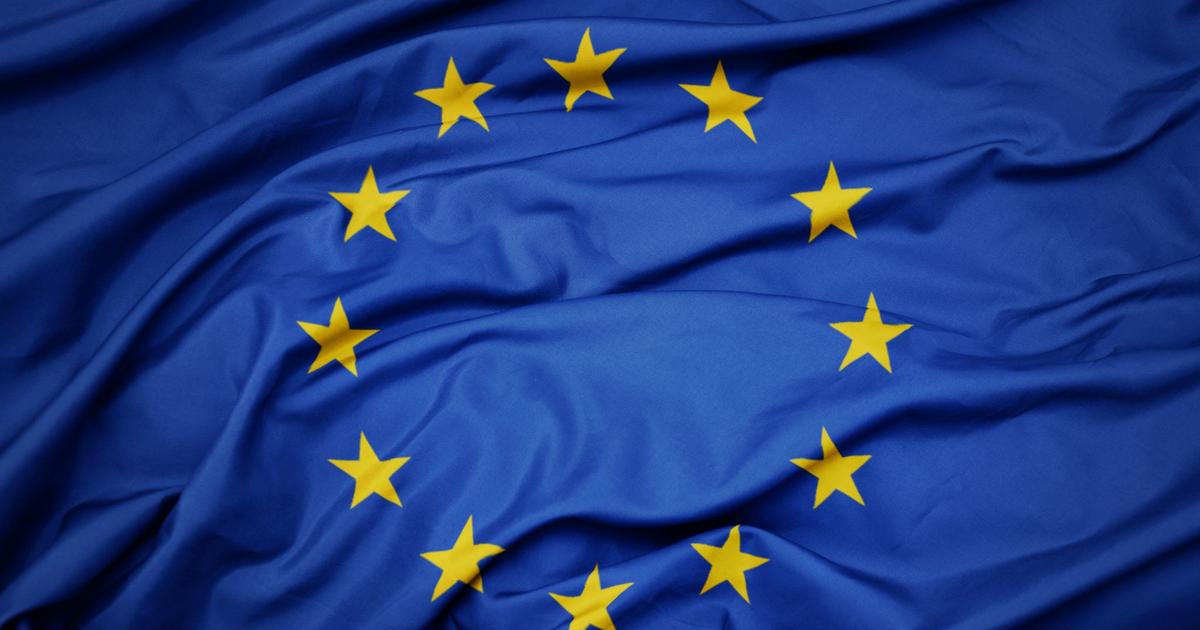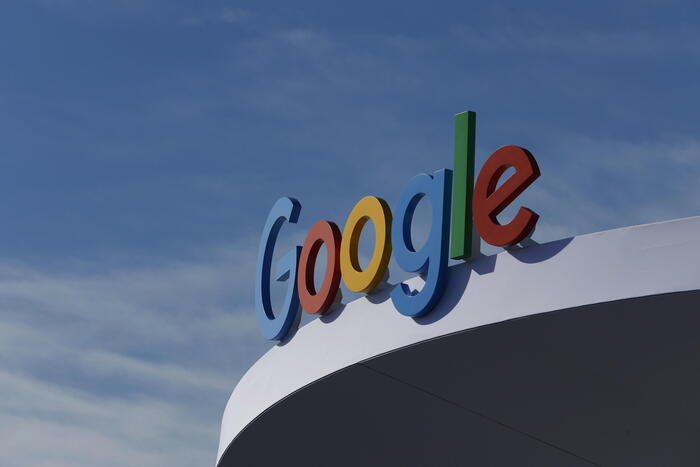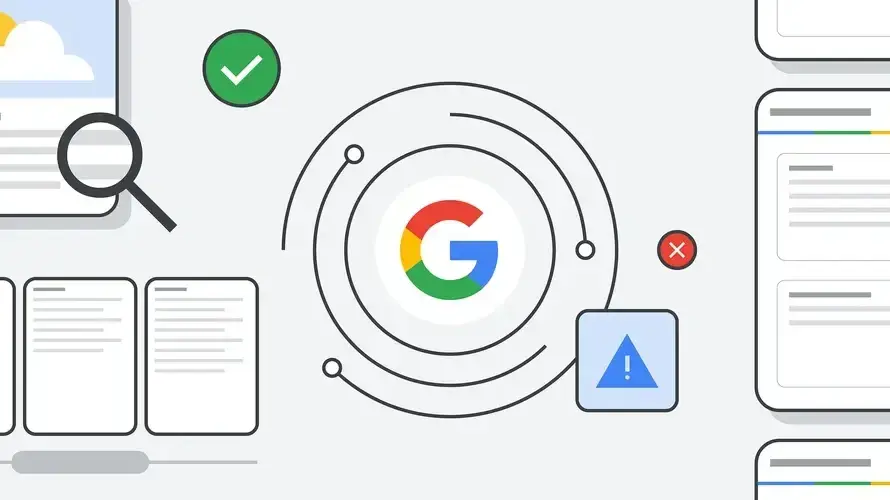Icon: enlarge
Google logo (archive image)
Photo: KENZO TRIBOUILLARD / AFP
The US Department of Justice accuses Google of having a monopoly as a search engine in the US and of abusing this position.
The search engine is the foundation and core of Google's market power.
In the USA, the group is expected to have a market share of 88 percent in this area.
A central allegation of the antitrust lawsuit: Google's parent company Alphabet is said to have made deals with companies like Samsung and Apple to ensure that Google is always suggested as the default search engine on smartphones and in browsers.
Which user then clumsily clicks through to another search engine?
Do you remember the last time you used Bing, Yahoo, or DuckDuckGo?
These three names are the only ones mentioned in the 64-page complaint as competitors in the US search engine market.
A look at the Google alternatives and a company from Russia shows how far Google has got ahead of its competition, how Google's power has become so great and what dilemma the alternatives are in.
Bing: Microsoft's market companion with a limited lock-in effect
Microsoft's Bing is the most widely used search engine in the world after Google.
However, it does not represent any real competition for Google - its share of the US market is only around seven percent according to the complaint.
The US Department of Justice's antitrust allegations only concern the US market.
A tough crackdown on Google in the USA could also have consequences for Europe and the rest of the world.
A search on Bing looks little different than on Google.
For example, if you are looking for recipes, you will see matching results with an image preview, just like on Google.
If you are looking for handicraft instructions, a short summary is often displayed in an info box, as is the case with Google.
Bing could at least keep up with one of the central competitive advantages of Google: As with Google with a Google account, users can log into Bing with their Microsoft account.
Bing is connected to Microsoft's Office services such as Word and Excel, the cloud storage service OneDrive and the video telephony service Teams.
However, the services are nowhere near as tightly integrated and numerous as in the Google ecosystem.
Microsoft cannot achieve a lock-in effect in which the entire computer usage consists practically only of services from one company.
In addition, unlike Google's online alternatives, Word and Excel, for example, are not free.
If Microsoft had won the bid for the social media service TikTok, the group would have been able to retain its users much better.
The company would then have had a successful social network in its portfolio - something that Google never succeeded in doing.
But the Trump administration apparently has other preferences for the future of TikTok.
Microsoft is also active in the lucrative search engine advertising market with Bing and, like Google, offers personalized advertising via cookies.
Customers can use the Microsoft Advertising Program to place ads that are automatically displayed in Bing, but also in other Microsoft services such as MSN.
Although significantly fewer people are reached in this way, the advantage over advertising on Google should, according to the company, be that it allegedly reaches a more lucrative, more affluent target group.
Ecosia and Yahoo: a bit like Bing
However, Bing's technology is not only used in Microsoft's search engine itself.
The results that are displayed on the search engines Yahoo, Ecosia and in the English-language version of the Chinese search engine Baidu are also provided by Bing.
If you summarize the market shares of Bing and Yahoo!
together, according to the "Statcounter" analysis service, they are still below ten percent in the USA - and even below five percent worldwide.
Ecosia is a German company.
The Berlin company advertises that it is making a contribution to environmental protection by flowing 80 percent of advertising income from the advertising business into reforestation projects.
According to its own information, Ecosia has almost ten million users.
DuckDuckGo: Alternative without tracking and without a chance
DuckDuckGo is a search engine founded in 2008 from the small town of Paoli in the US state of Pennsylvania.
The company has 111 employees and advertises with a comparatively privacy-friendly approach: DuckDuckGo does not save any IP addresses, cookies (except for changed settings) or other data that could be used to identify users.
There is no log-in like with Google's services.
In the US, DuckDuckGo has less than two percent market share, according to the US Justice Department's lawsuit against Google.
DuckDuckGo is also struggling to gain a foothold in Europe.
DuckDuckGo criticizes Google: For example, the auctions in which Google auctions places for alternative search engines that are available as standard searches when setting up a new Android device are "fundamentally flawed."
Probably also because the provider was not very successful at the last auction.
According to its own information, DuckDuckGo processes more than two billion search queries a month, which, according to "Internet Live Stats" figures, is significantly less than Google receives per day.
The search results come from various sources, including Bing, Yandex, Wolfram Alpha, their own web crawler and, more recently, Apple Maps.
There is advertising at DuckDuckGo despite the privacy-friendly approach.
However, advertisers do not buy ads directly from the company, but from Microsoft Advertising.
Microsoft then distributes the advertisements in its "Search Network", ie Bing, Yahoo and other partners such as DuckDuckGo.
According to DuckDuckGo, the ads are limited to the respective search term, specific targeting is not offered.
In pure text searches, users can definitely find differences to the results of a Google search, although DuckDuckGo is much less suitable for researching media reports.
A standard search for videos only yields results for Google's video service YouTube, not even Google does that itself.
The route planning for drivers and pedestrians introduced in October 2020 is based on Apple Maps.
Yandex: Dominant in the east thanks to Google
The large Russian technology group Yandex has not played a role in the US market so far, but has been the market leader in Russia and large parts of the post-Soviet region for decades before Google.
Unlike DuckduckGo and Bing, Yandex also has its own technology to take on Google across the board.
Similar to the US group, the Russians started early to build an ecosystem with numerous additional services around their search engine: Ten years ago, Yandex was way ahead of Google in Russia when it came to maps and traffic navigation.
The Yandex.Probka traffic jam detector has become an important tool for millions of Russian drivers.
There are also Yandex.Mail, the cloud service Yandex.Disk, a partially even Google-superior reverse image search, browser, translation service, a very popular transport service, a food delivery service and a news aggregator that reaches more Russians every day than the big ones state TV broadcaster.
That is also the reason why the Kremlin has put the Internet company under control in recent years.
Parts of the founding team were considered to be more liberal, and in large demonstrations against Putin's return to the Kremlin in 2011 and 2012, the company showed sympathy with the movement.
The president returned the favor with tips that Yandex was obviously controlled by foreigners.
That was a lie, but also a clear warning.
In the meantime, reports from some media critical of the Kremlin no longer appear on Yandex News.
As strong as Yandex's position in the post-Soviet area is, its successes are also limited: The widely announced Yandex start in Turkey was rather sluggish, with the search engine only gaining a 14 percent market share.
The promised start in Germany was never realized.
Conclusion: It seems unlikely that the US Department of Justice will weaken Google so that a competitor moving ever closer to the Kremlin can step in.
Icon: The mirror









